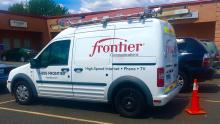Frontier Backs Down Slightly on Challenges to RDOF Eligible Areas
Over the weekend, Frontier filed comments with the Federal Communications Commission (FCC) announcing that it would “welcome the inclusion” of the census blocks where it claims to newly offer broadband service into the upcoming Rural Digital Opportunity Fund (RDOF). Phase one of RDOF will distribute $16 billion to providers to expand rural broadband access in unserved areas later this year.
We wrote previously on Frontier’s attempt to remove 17,000 census blocks, representing over 400,000 Americans, from the first phase of RDOF by reporting that the company could now provide broadband speeds of 25 Megabits per second (Mbps) download and 3 Mbps upload, the federal minimum definition of broadband, in those areas. At the time, we expressed concern that Frontier, which has a long history of neglecting its rural networks, was exaggerating its broadband coverage in an effort to prevent competition. The Institute for Local Self-Reliance (ILSR) filed comments with the FCC requesting that the agency investigate Frontier’s claims before removing any of the identified census blocks.
But while Frontier’s recent filings suggest that the company will not fight to remove those census blocks from the subsidy program, it leaves the door open for the FCC to remove the contested areas anyway.
Filings Offer Inadequate Explanations
On May 23, Frontier filed a short notice with the FCC seeking to “clarify” its position, indicating that it would not fight to exclude the 17,000 census blocks in question despite maintaining that it does offer 25/3 Mbps speeds in those areas. The company followed up on May 26 with a longer filing that responded to comments filed by ILSR and others and asserted that its claimed broadband speeds are correct.



